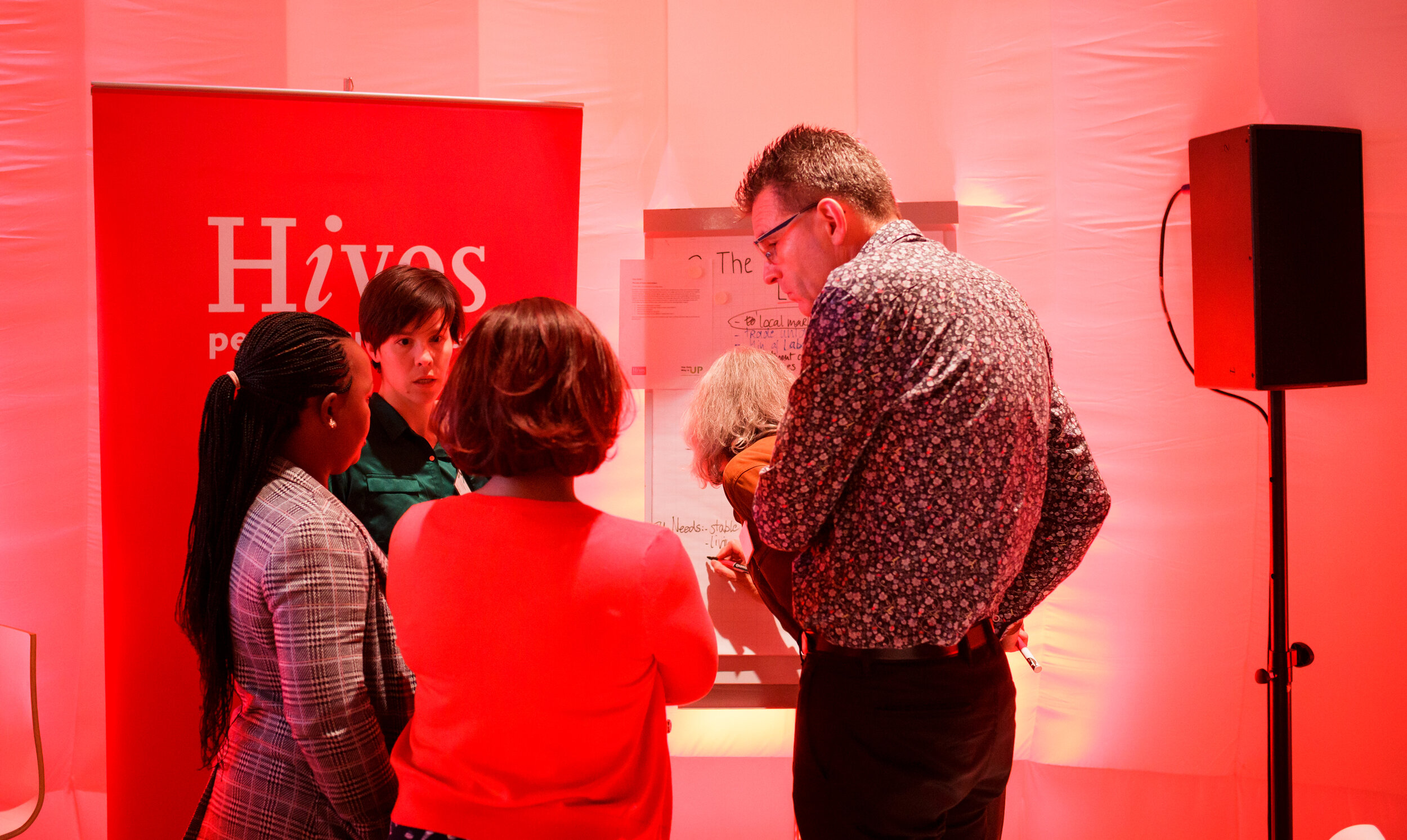Flower sector needs transparency and cooperation to come to a living wage
During the second day of ‘The Only Way is Up!’ Hivos hosted the workshop ‘Up your game: a living wage case study from local worker to consumer’. It brought together the key players in the international flower supply chain to discuss wages. The entire supply chain was represented: from a local workers’ union all the way up to the end consumer.
The panel consisted out of Mastewal Habtamu Assefa from the Ethiopian National Federation of Farm Plantation and Fisheries and Agro-Industries Trade Union (NFFPFAITU), Michel van den Boogaard, CFO of the Ethiopian-based rose production company SHER Afriflora, and Marloes Bruin, Sustainability Manager at the Dutch retailer Albert Heijn. Central in the discussion was the situation in Ethiopia. Ethiopia does not have a legal minimum wage and is globally known for its cheap labour force, which some governmental stakeholders view as an economic advantage. It is feared that by setting a decent minimum wage, foreign direct investments will be discouraged and the unemployment rate will go up.
Well-being of the workers
For Mastewal Habtamu Assefa, there are several ways forward. “A policy package must be designed to prioritise the workers’ well-being”, she explained. ”Moreover, trade unions need to be strengthened on sectoral and national level. Lastly, consumer power needs to be leveraged. In other words, human rights and labour need to be part of the discussion around corporate social responsibility.”
So what constitutes this workers’ well-being? According to Michel van den Boogaard from SHER Afriflora, the well-being of employees consists of many building blocks, of which decent wages is one. Over the past years, SHER Afriflora has built a hospital, several family planning clinics, schools that offer free education to workers’ children and many more training and programmes to strengthen the local community. Although these effort certainly increase the well-being of the workers, these ‘in kind benefits’ may only account for a small part of the total salary of an employee. This is where it becomes interesting, as Michel van den Boogaard explains, because higher wages do not always directly lead to higher purchasing power. “In the past we have been in a situation where we increased all wages with a certain percentage, which almost directly ended up in the local landlord’s pocket, as the rent increased the same week with the same percentage.” This is why SHER Afriflora wants a living wage methodology that focuses on the most lasting impact for the workers, rather than creating a formula to fit all.
Marloes Bruin, Sustainability Manager at the Dutch retailer Albert Heijn, explains that the first step towards a living wage is creating transparency in the supply chain and stakeholder involvement. Although Albert Heijn is planning to develop a living wage pilot in their flower supply chain, they do foresee some challenges ahead. These challenges range from a lack of support from local policy makers to unintended consequences, such as social unrest, when increasing wages. Marloes Bruin argues that the only way to make a real difference is when stakeholders in the sector work together, ensuring an equal playing field by making living wages the standard and thus a precompetitive issue.
Women@Work Campaign
The session was organised by the Women@Work Campaign of Hivos. The Campaign aims to improve the labour conditions of women who work in the global supply chains of flowers and vegetables that are grown in East and Southern Africa for the export market. Hivos is also part of the RBC agreement for the floricultural sector. “The reason we organised this session was to first of all show the audience what is currently happening in the flower sector, but most importantly to bring together relevant players in the international flower supply chain to discuss the challenges with each other”, explains Nada van Schouwenburg, Advocacy Officer. ”Discussion and cooperation within the chain is crucial when wanting to accelerate change at production level.”


